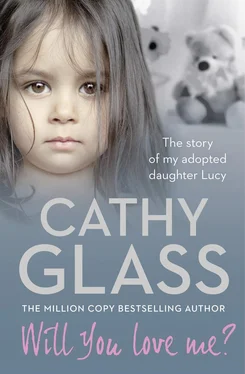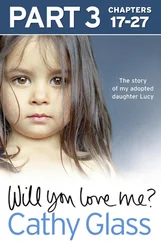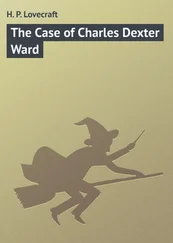She picked up the Moses basket and bag, and as she did she caught sight of her face in the mirror on the wall. Under the bright light she looked even paler than usual and she seemed to have lost weight; her cheekbones jutted out and there were dark circles under her eyes. With a stab of horror, Bonnie thought that if she didn’t change her lifestyle soon she’d end up looking like her mother, haggard from years of drinking and smoking and being knocked around.
Returning to the restaurant, Bonnie ordered a hot chocolate for herself and a carton of milk for Lucy. ‘Eat here or takeaway?’ the assistant asked.
‘Here,’ Bonnie confirmed.
She paid and then, lodging the drinks upright at the foot of the Moses basket so she could carry everything in one go, she crossed to one of the long bench seats on the far side – away from the cashiers and the draughty door. Placing the Moses basket on the seat beside her, Bonnie quickly began drinking her hot chocolate. The warmth and sweetness was comforting and reminiscent of the hot milky drinks her gran used to make for her when she’d stayed with her as a child. Bonnie wondered what her gran was doing now. Her mother had fallen out with her and they hadn’t spoken for some years. Bonnie loved her gran, although she hadn’t seen her since she’d left home eight years previously.
She took the packet containing the last few biscuits from her bag and kept it on her lap, out of sight of the staff, as she quickly ate them. The sugar rush lifted her spirits and helped quell her appetite for the time being. Lucy was watching her, but didn’t appear to be hungry so Bonnie decided she’d keep the carton of milk she’d just bought for later and tucked it back in at the foot of the Moses basket, ready for when it was needed. She also had the yoghurts, one of which she’d give to Lucy later. She’d started giving her some soft food – yoghurt, a chip chewed by her first to soften it or a piece of bread soaked in her tea. When they were settled, she thought, and she had more money, she’d start buying the proper baby foods for weaning.
‘It won’t always be like this,’ Bonnie said out loud, turning to her daughter and gently stroking her cheek. ‘It will get better. I promise you.’ Although how and when it would get better Bonnie had no idea.
At 9.00 a.m. Bonnie hitched the bag over her shoulders, picked up the Moses basket and left the fast-food restaurant in search of a chemist. Lucy was asleep now and, although she hadn’t been sick or had a dirty nappy yet that morning, Bonnie wanted to buy the medicine so she had it ready in case it was needed. She tried to be a good mum, she told herself, but it was very difficult with no home, no regular income and having her own mother as a role model. When she’d been a child she’d assumed that the chaos and poverty she and her brothers were forced to live in was normal, that all families lived like that. But when she was old enough to play in other children’s houses she realized not only that it was not normal but that others on the estate pitied her and criticized her mother for neglecting her and her brothers. Bonnie wondered why no one had intervened; perhaps it was because of her mother’s ugly temper, which she’d been on the receiving end of many times and was always worse when she’d been drinking. This might also have been the reason why the social services hadn’t rescued her and her brothers as they had some of the other kids on the estate, she thought; that, or they weren’t worth saving – a view she still held today.
Bonnie spotted the blue-and-white cross on the chemist’s shop a little further up and went in. There were two customers already inside: a lady browsing the shelves and a man being served at the counter. Bonnie scanned the shelves looking for the medicine she needed but couldn’t find it. Once the man at the counter had finished, she went up to the pharmacist – a rather stern middle-aged Asian woman dressed in a colourful sari.
‘I think what I need is called Dioralyte,’ Bonnie said.
‘Is it for you?’ the pharmacist asked, giving Bonnie the once over.
‘No, for my baby.’
‘How old is it?’
‘Six months.’
She glanced at the Moses basket Bonnie held in front of her. ‘What are the symptoms?’
‘Sickness and diarrhoea.’
‘How long has she been ill?’
‘Two days,’ Bonnie said.
‘She needs to see a doctor if it continues,’ the pharmacist said. Reaching up to a shelf on her right, she took down a box marked Dioralyte. ‘This box contains six sachets,’ she said, leaning over the counter and tapping the box with her finger. ‘You follow the instructions. Mix one sachet with water or milk. You understand this doesn’t cure sickness and diarrhoea? It replaces the salts and glucose lost from the body. If your baby is no better in twenty-four hours, you must take her to your doctor.’
‘I will,’ Bonnie said, taking her purse from her pocket.
‘Four pounds twenty,’ the woman said.
‘That’s a lot!’ Bonnie exclaimed. ‘Can’t I just buy two sachets?’
The pharmacist paused from ringing up the item on the till and looked at Bonnie. Bonnie knew she should have kept quiet and paid. Through the dispensing hatch Bonnie could see a man, presumably the woman’s husband, stop what he was doing and look at her. Then the woman came out from behind the counter and leaned over the Moses basket for a closer look at Lucy.
‘I can smell sick,’ she said, feeling Lucy’s forehead to see if she had a temperature. Lucy stirred but didn’t wake.
‘It might be on the blanket,’ Bonnie said defensively. ‘I didn’t have time to wash that before I left. Her clothes are clean.’
‘Have you taken the baby’s temperature?’ the woman now asked.
‘Yes,’ Bonnie lied. ‘She doesn’t feel hot, does she?’
‘No, but that isn’t necessarily a good test. What was her temperature?’
‘Normal,’ Bonnie said, with no idea what that was.
The woman looked at her and then returned to behind the counter. ‘Babies can become seriously ill very quickly,’ she said. ‘You need to watch her carefully. If you go to your doctor’s, they will give you a prescription for free. Where do you live?’
‘Eighty-six Hillside Gardens,’ Bonnie said, giving the address of the launderette she’d just left. It was the only local address she knew by heart.
‘Do you want the Dioralyte?’
‘Yes,’ Bonnie said, and quickly handed her a five pound note.
‘Remember, you see your doctor if she’s no better tomorrow,’ the woman said again, and gave her the change.
‘I will,’ Bonnie said, just wanting to get out. Once she’d tucked the change into her purse, she dropped it along with the paper bag containing the Dioralyte into the Moses basket and hurried from the shop.
However, inside the shop Mrs Patel was concerned. The young woman she had just served looked thin and gaunt and her baby was ill. She’d appeared agitated and the basket she carried her baby in was old and grubby; she hadn’t seen one like it for years. And why was the mother out on the streets with her bags packed in the middle of winter when her baby was ill? It didn’t add up; something wasn’t right. Mrs Patel was aware that in the past chemists had missed warning signs when intervention could have stopped suffering and even saved a life. Half an hour later, having voiced her concerns to her husband, he served in the shop while she went into their office at the back of the shop and phoned the social services.
‘This may be nothing,’ she began, as many callers to the duty social worker do. ‘My name is Mrs Patel, I’m the chemist at 137 High Street. I’ve just served a young woman with a sick baby and I’m concerned. Is it possible for someone to check on her? I have an address.’
Читать дальше











